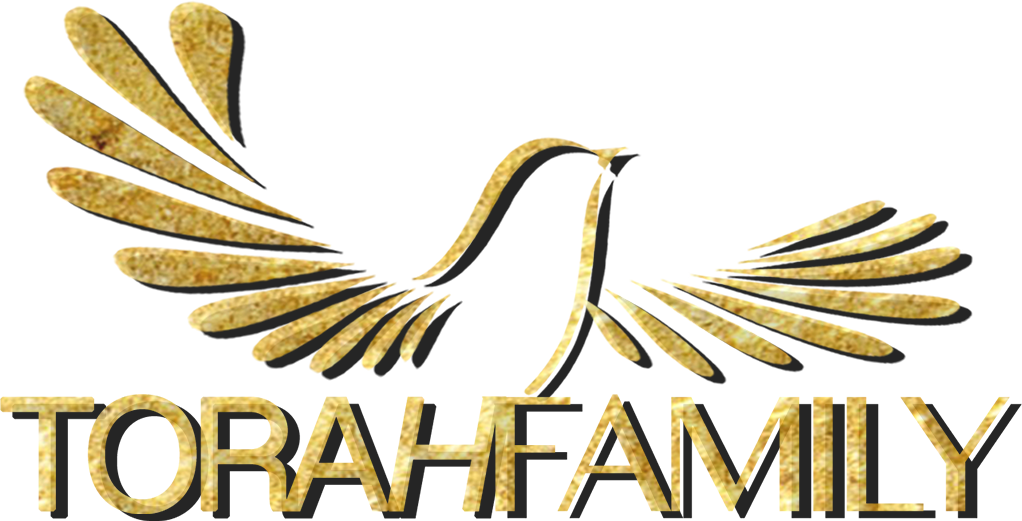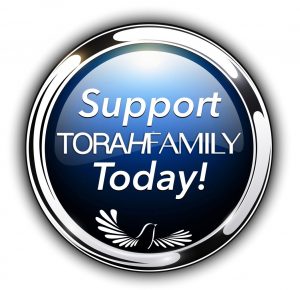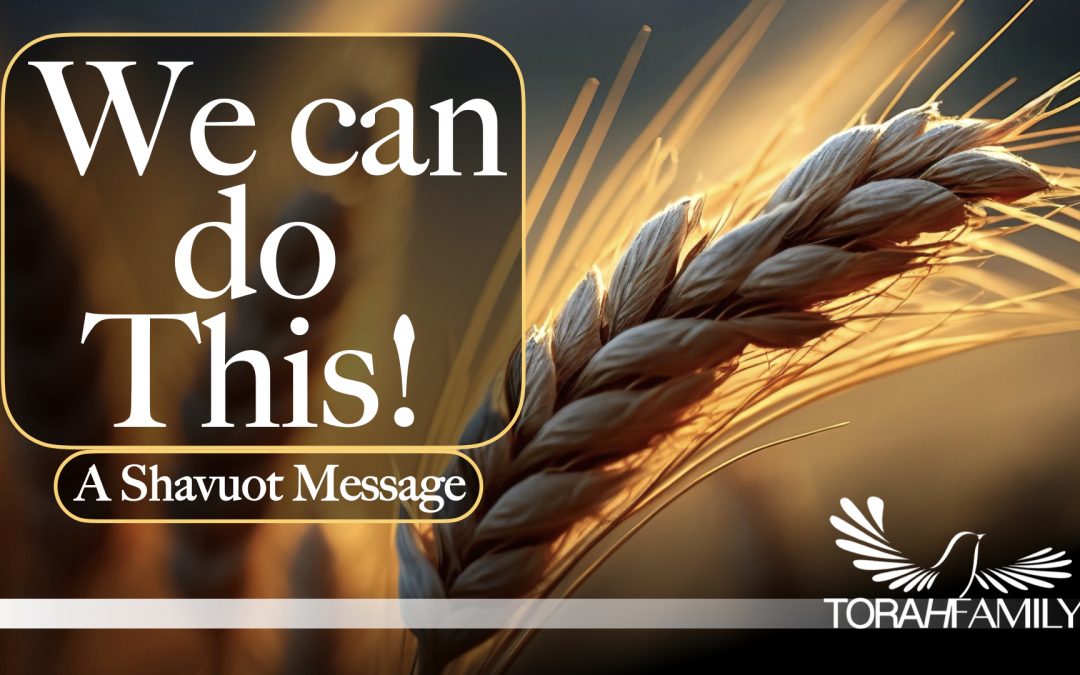Special thanks to TorahPortions.org for making this page possible.

Leviticus 16 Isaiah 57:14-58:14 Matthew 27:11-26
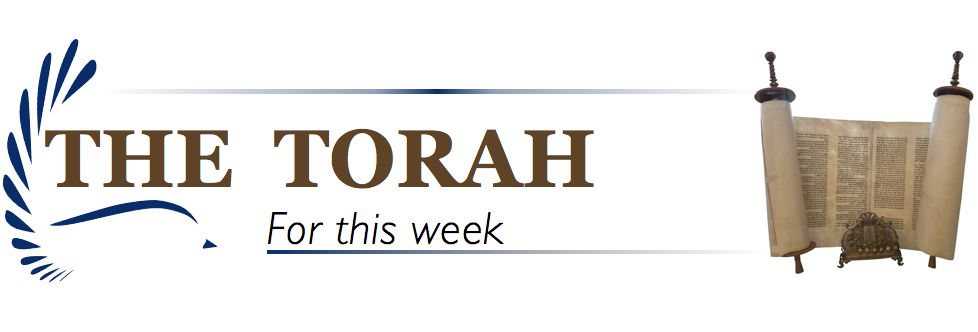
Leviticus 16
The Day of Atonement
16:1 The Lord spoke to Moses after the death of the two sons of Aaron, when they drew near before the Lord and died, 2 and the Lord said to Moses, “Tell Aaron your brother not to come at any time into the Holy Place inside the veil, before the mercy seat that is on the ark, so that he may not die. For I will appear in the cloud over the mercy seat. 3 But in this way Aaron shall come into the Holy Place: with a bull from the herd for a sin offering and a ram for a burnt offering. 4 He shall put on the holy linen coat and shall have the linen undergarment on his body, and he shall tie the linen sash around his waist, and wear the linen turban; these are the holy garments. He shall bathe his body in water and then put them on. 5 And he shall take from the congregation of the people of Israel two male goats for a sin offering, and one ram for a burnt offering.
6 “Aaron shall offer the bull as a sin offering for himself and shall make atonement for himself and for his house. 7 Then he shall take the two goats and set them before the Lord at the entrance of the tent of meeting. 8 And Aaron shall cast lots over the two goats, one lot for the Lord and the other lot for Azazel. [1] 9 And Aaron shall present the goat on which the lot fell for the Lord and use it as a sin offering, 10 but the goat on which the lot fell for Azazel shall be presented alive before the Lord to make atonement over it, that it may be sent away into the wilderness to Azazel.
11 “Aaron shall present the bull as a sin offering for himself, and shall make atonement for himself and for his house. He shall kill the bull as a sin offering for himself. 12 And he shall take a censer full of coals of fire from the altar before the Lord, and two handfuls of sweet incense beaten small, and he shall bring it inside the veil 13 and put the incense on the fire before the Lord, that the cloud of the incense may cover the mercy seat that is over the testimony, so that he does not die. 14 And he shall take some of the blood of the bull and sprinkle it with his finger on the front of the mercy seat on the east side, and in front of the mercy seat he shall sprinkle some of the blood with his finger seven times.
15 “Then he shall kill the goat of the sin offering that is for the people and bring its blood inside the veil and do with its blood as he did with the blood of the bull, sprinkling it over the mercy seat and in front of the mercy seat. 16 Thus he shall make atonement for the Holy Place, because of the uncleannesses of the people of Israel and because of their transgressions, all their sins. And so he shall do for the tent of meeting, which dwells with them in the midst of their uncleannesses. 17 No one may be in the tent of meeting from the time he enters to make atonement in the Holy Place until he comes out and has made atonement for himself and for his house and for all the assembly of Israel. 18 Then he shall go out to the altar that is before the Lord and make atonement for it, and shall take some of the blood of the bull and some of the blood of the goat, and put it on the horns of the altar all around. 19 And he shall sprinkle some of the blood on it with his finger seven times, and cleanse it and consecrate it from the uncleannesses of the people of Israel.
20 “And when he has made an end of atoning for the Holy Place and the tent of meeting and the altar, he shall present the live goat. 21 And Aaron shall lay both his hands on the head of the live goat, and confess over it all the iniquities of the people of Israel, and all their transgressions, all their sins. And he shall put them on the head of the goat and send it away into the wilderness by the hand of a man who is in readiness. 22 The goat shall bear all their iniquities on itself to a remote area, and he shall let the goat go free in the wilderness.
23 “Then Aaron shall come into the tent of meeting and shall take off the linen garments that he put on when he went into the Holy Place and shall leave them there. 24 And he shall bathe his body in water in a holy place and put on his garments and come out and offer his burnt offering and the burnt offering of the people and make atonement for himself and for the people. 25 And the fat of the sin offering he shall burn on the altar. 26 And he who lets the goat go to Azazel shall wash his clothes and bathe his body in water, and afterward he may come into the camp. 27 And the bull for the sin offering and the goat for the sin offering, whose blood was brought in to make atonement in the Holy Place, shall be carried outside the camp. Their skin and their flesh and their dung shall be burned up with fire. 28 And he who burns them shall wash his clothes and bathe his body in water, and afterward he may come into the camp.
29 “And it shall be a statute to you forever that in the seventh month, on the tenth day of the month, you shall afflict yourselves [2] and shall do no work, either the native or the stranger who sojourns among you. 30 For on this day shall atonement be made for you to cleanse you. You shall be clean before the Lord from all your sins. 31 It is a Sabbath of solemn rest to you, and you shall afflict yourselves; it is a statute forever. 32 And the priest who is anointed and consecrated as priest in his father’s place shall make atonement, wearing the holy linen garments. 33 He shall make atonement for the holy sanctuary, and he shall make atonement for the tent of meeting and for the altar, and he shall make atonement for the priests and for all the people of the assembly. 34 And this shall be a statute forever for you, that atonement may be made for the people of Israel once in the year because of all their sins.” And Moses did as the Lord commanded him. (ESV)
Footnotes
[1] 16:8 The meaning of Azazel is uncertain; possibly the name of a place or a demon, traditionally a scapegoat; also verses 10, 26
[2] 16:29 Or shall fast; also verse 31
Isaiah 57:14-58:14
Comfort for the Contrite
14 And it shall be said, “Build up, build up, prepare the way, remove every obstruction from my people’s way.” 15 For thus says the One who is high and lifted up, who inhabits eternity, whose name is Holy: “I dwell in the high and holy place, and also with him who is of a contrite and lowly spirit, to revive the spirit of the lowly, and to revive the heart of the contrite. 16 For I will not contend forever, nor will I always be angry; for the spirit would grow faint before me, and the breath of life that I made. 17 Because of the iniquity of his unjust gain I was angry, I struck him; I hid my face and was angry, but he went on backsliding in the way of his own heart. 18 I have seen his ways, but I will heal him; I will lead him and restore comfort to him and his mourners, 19 creating the fruit of the lips. Peace, peace, to the far and to the near,” says the Lord, “and I will heal him. 20 But the wicked are like the tossing sea; for it cannot be quiet, and its waters toss up mire and dirt. 21 There is no peace,” says my God, “for the wicked.”
True and False Fasting
58:1 “Cry aloud; do not hold back; lift up your voice like a trumpet; declare to my people their transgression, to the house of Jacob their sins. 2 Yet they seek me daily and delight to know my ways, as if they were a nation that did righteousness and did not forsake the judgment of their God; they ask of me righteous judgments; they delight to draw near to God. 3 ‘Why have we fasted, and you see it not? Why have we humbled ourselves, and you take no knowledge of it?’ Behold, in the day of your fast you seek your own pleasure, [1] and oppress all your workers. 4 Behold, you fast only to quarrel and to fight and to hit with a wicked fist. Fasting like yours this day will not make your voice to be heard on high. 5 Is such the fast that I choose, a day for a person to humble himself? Is it to bow down his head like a reed, and to spread sackcloth and ashes under him? Will you call this a fast, and a day acceptable to the Lord?
6 “Is not this the fast that I choose: to loose the bonds of wickedness, to undo the straps of the yoke, to let the oppressed [2] go free, and to break every yoke? 7 Is it not to share your bread with the hungry and bring the homeless poor into your house; when you see the naked, to cover him, and not to hide yourself from your own flesh? 8 Then shall your light break forth like the dawn, and your healing shall spring up speedily; your righteousness shall go before you; the glory of the Lord shall be your rear guard. 9 Then you shall call, and the Lord will answer; you shall cry, and he will say, ‘Here I am.’ If you take away the yoke from your midst, the pointing of the finger, and speaking wickedness, 10 if you pour yourself out for the hungry and satisfy the desire of the afflicted, then shall your light rise in the darkness and your gloom be as the noonday. 11 And the Lord will guide you continually and satisfy your desire in scorched places and make your bones strong; and you shall be like a watered garden, like a spring of water, whose waters do not fail. 12 And your ancient ruins shall be rebuilt; you shall raise up the foundations of many generations; you shall be called the repairer of the breach, the restorer of streets to dwell in.
13 “If you turn back your foot from the Sabbath, from doing your pleasure [3] on my holy day, and call the Sabbath a delight and the holy day of the Lord honorable; if you honor it, not going your own ways, or seeking your own pleasure, [4] or talking idly; [5] 14 then you shall take delight in the Lord, and I will make you ride on the heights of the earth; [6] I will feed you with the heritage of Jacob your father, for the mouth of the Lord has spoken.” (ESV)
Footnotes
[1] 58:3 Or pursue your own business
[2] 58:6 Or bruised
[3] 58:13 Or business
[4] 58:13 Or pursuing your own business
[5] 58:13 Hebrew or speaking a word
[6] 58:14 Or of the land
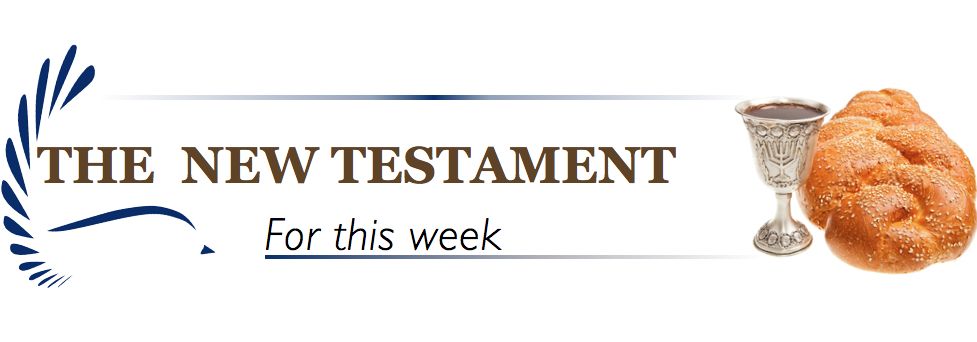
Matthew 27:11-26
Yeshua or Barabbas
Meanwhile Yeshua stood before the governor, and the governor asked him, “Are you the king of the Jews?” “Yes, it is as you say,” Jesus replied. 12 When he was accused by the chief priests and the elders, he gave no answer. 13 Then Pilate asked him, “Don’t you hear the testimony they are bringing against you?” 14 But Yeshua made no reply, not even to a single charge — to the great amazement of the governor. 15 Now it was the governor’s custom at the Feast to release a prisoner chosen by the crowd. 16 At that time they had a notorious prisoner, called Barabbas. 17 So when the crowd had gathered, Pilate asked them, “Which one do you want me to release to you: Barabbas, or Yeshua who is called Christ?” 18 For he knew it was out of envy that they had handed Yeshua over to him.
19 While Pilate was sitting on the judge’s seat, his wife sent him this message: “Don’t have anything to do with that innocent man, for I have suffered a great deal today in a dream because of him.” 20 But the chief priests and the elders persuaded the crowd to ask for Barabbas and to have Yeshua executed. 21 “Which of the two do you want me to release to you?” asked the governor. “Barabbas,” they answered. 22 “What shall I do, then, with Yeshua who is called Christ?” Pilate asked. They all answered, “Crucify him!” 23 “Why? What crime has he committed?” asked Pilate. But they shouted all the louder, “Crucify him!” 24 When Pilate saw that he was getting nowhere, but that instead an uproar was starting, he took water and washed his hands in front of the crowd. “I am innocent of this man’s blood,” he said. “It is your responsibility!” 25 All the people answered, “Let his blood be on us and on our children!” 26 Then he released Barabbas to them. But he had Yeshua flogged, and handed him over to be crucified.
